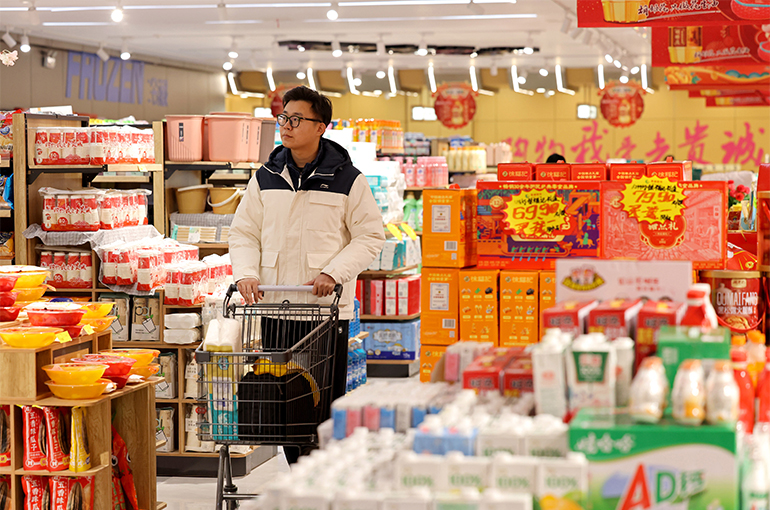 China’s Consumer Inflation Quickens, Factory Prices Keep Falling in January
China’s Consumer Inflation Quickens, Factory Prices Keep Falling in January(Yicai) Feb. 10 -- China’s consumer inflation rose at the fastest pace in five months in January, mainly because of the Chinese New Year holiday. Meanwhile, the cost of goods at the factory gate continued to decline.
The consumer price index rose 0.5 percent in January from a year earlier, compared with a 0.1 percent increase the previous month, the National Bureau of Statistics said yesterday. On a monthly basis, the CPI expanded 0.7 percent last month, while it remained flat in December.
The core CPI, which excludes food and energy prices, inched up 0.6 percent in January from a year earlier, up for the fourth consecutive month, NBS data showed. This compares with a 0.4 percent increase in December.
The CPI mainly rose because of food and service price hikes during the Chinese New Year holiday, said Wang Qing, chief macroeconomic analyst at Golden Credit Rating. Moreover, prices of some consumer goods, such as home appliances and cars, were supported by large-scale equipment renewal and consumer goods replacement policies, Wang added.
The employment-income-consumption cycle is expected to improve as macroeconomic policies focus on promoting consumption and stabilizing the real estate and stock markets, Wu Chaoming, chief economist at Fortune Financial, told Yicai. This should provide mild support for the core CPI, but its growth will likely remain moderate because of the significant destocking pressure on the supply side and limited demand elasticity, Wu noted.
Factory-Gate Prices
The producer price index fell 2.3 percent last month from a year earlier, unchanged from December’s decline, according to NBS data. On a monthly basis, the PPI dropped 0.2 percent in January.
Industrial prices may experience a moderate recovery in the short term because of the increasing effectiveness of stimulus packages and the low base in January, easing the downward pressure on international commodity prices, Wu predicted.
The PPI will likely decline 0.9 percent this year from 2024, according to Wu. Last year, the PPI fell 2.2 percent.
Editor: Futura Costaglione